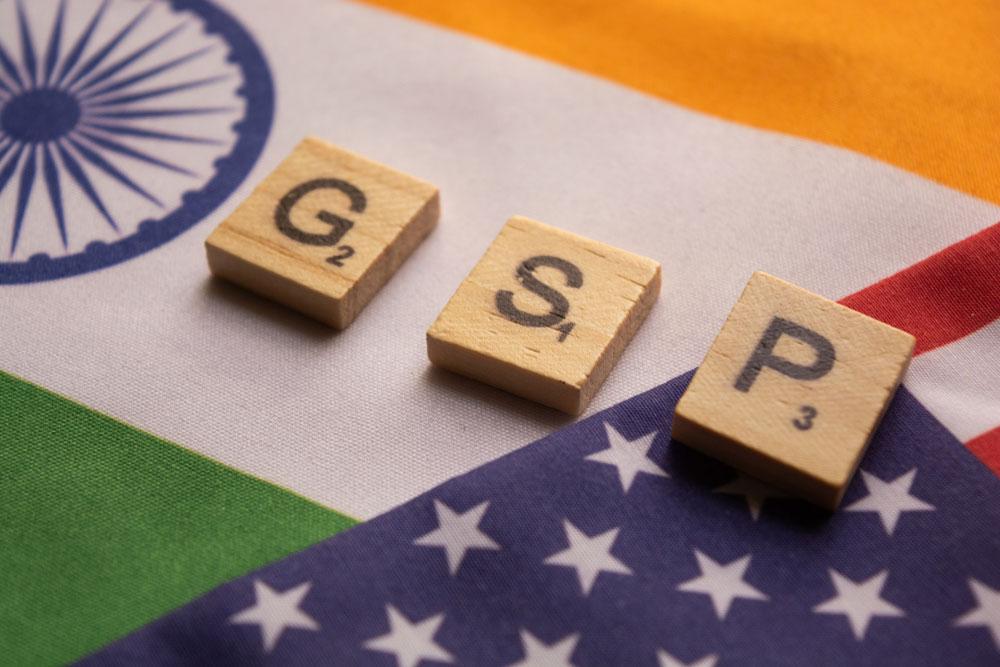India on Saturday said it would continue to work towards strengthening trade ties with the US, despite the withdrawal of duty-free benefits to Indian exports, which it described as “unfortunate”.
“India will continue to build on its strong ties with the US and resolve ongoing issues on economies ties. We are confident that the two nations will continue to work together intensively for further growing these ties in a mutually beneficial manner,” the commerce ministry in a statement said.
It said India as part of its bilateral discussions had offered resolution on significant US requests in an effort to find a mutually acceptable way forward.
“It is unfortunate that this did not find acceptance by the US. India, like the US and other nations, shall always uphold its national interest in these matters. We have significant development imperatives and concerns and our people also aspire for better standards of living. This will remain the guiding factor in the government’s approach,” the ministry said in a relatively tame response to the announcement from Washington on Friday.
US president Donald Trump through a presidential proclamation withdrew duty-free benefits to Indian exporters worth about $6 billion.
“I have determined that India has not assured the US that it will provide equitable and reasonable access to its markets. Accordingly, it is appropriate to terminate India’s designation as a beneficiary developing country effective June 5, 2019,” Trump said in his proclamation.
The US in March announced its decision to withdraw the preferential duty benefits, called Generalised System of Preferences (GSP), to India after talks between the two sides broke down on “disproportionate” demands by the former.
Exporters said the GSP withdrawal would have a limited impact on overall exports to the US but some products may face the heat.
Ganesh Kumar Gupta, president of the Federation of Indian Export Organisations, said India’s exports to the US during 2018 were at $51.4 billion. Of this, exports under GSP were worth only $6.35 billion, with a benefit of only $260 million being accrued to the Indian exporters.
The sectors most affected would be imitation jewellery, leather articles (other than footwear), pharmaceuticals and surgical products, chemicals and plastics and agriculture (basic and processed items).
“At macro level the impact of GSP withdrawal on our exports to US would be minimal. However, in respect of products having GSP benefits of 3% or more, exporters may find it difficult to absorb the GSP loss,” he said.
Gupta said the government should provide some supports to products where GSP loss has been significant so that the market is not lost. He favoured extension of Rebate of State & Central Tax Levies Scheme (RoSCTL) on such products on exports to US.
India is the largest beneficiary of the US government’s GSP scheme, devised to promote exports of developing countries, which allows duty-free access to about 3,500 items from the country.
According to the USTR, the total US imports under GSP in 2017 was USD 21.2 billion, of which India was the biggest beneficiary with USD 5.6 billion, followed by Thailand (USD 4.2 billion) and Brazil (USD 2.5 billion).
However, the US deferred implementing the GSP withdrawal becaythe ongoing general elections in India. This had raised hopes that the two sides may engage again to resolve the differences after Modi government took charge on Thursday.Analysts said benefits offered by the US to the developing countries under the GSP scheme are non-reciprocal. However, the US can withhold the benefits to a trading partner if it finds its exports are facing market access hurdles in that country.
Task
The new Commerce Minister Piyush Goyal and S. Jaishankar, who was earlier ambassador to the US and has taken charge as the new external affairs minister, would have to bridge the differences between New Delhi and Washington on trade issue as the US President has been describing the country as “tariff king.” However, India has maintained that its tariff levels are in accordance with WTO rules applicable to developing countries.
The two ministers would have to work out the way forward in bilateral and trade relations during the visit of Secretary of State Mike Pompeo to Delhi later this month.
The US has alleged India of unfair trade practices and is opposed to the proposed data localisation, price control on medical devices and higher tariff on telecommunication equipment, market access for its products among others.
India has repeatedly delayed the retaliatory tariffs announced on 29 US products against the increase in tariff on steel and aluminium by the US. With the current deadline ending on 16 June, Goyal has to decide whether India should now impose the tariff hikes on US products or not.











